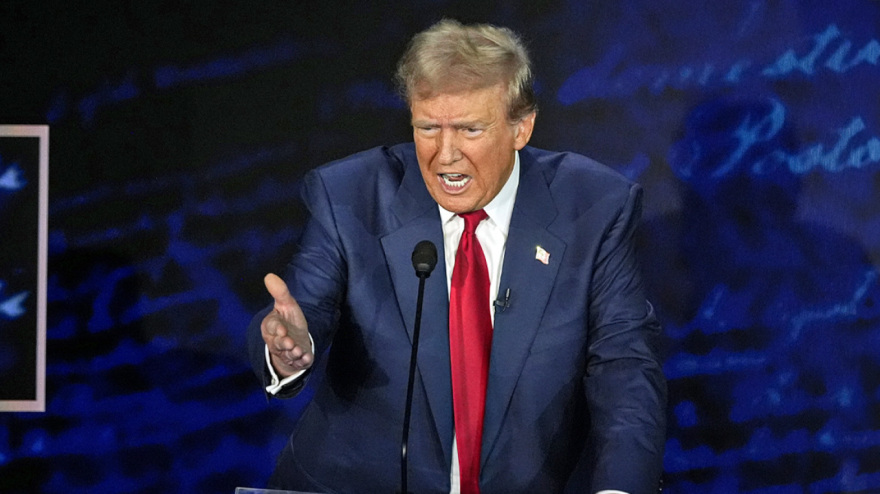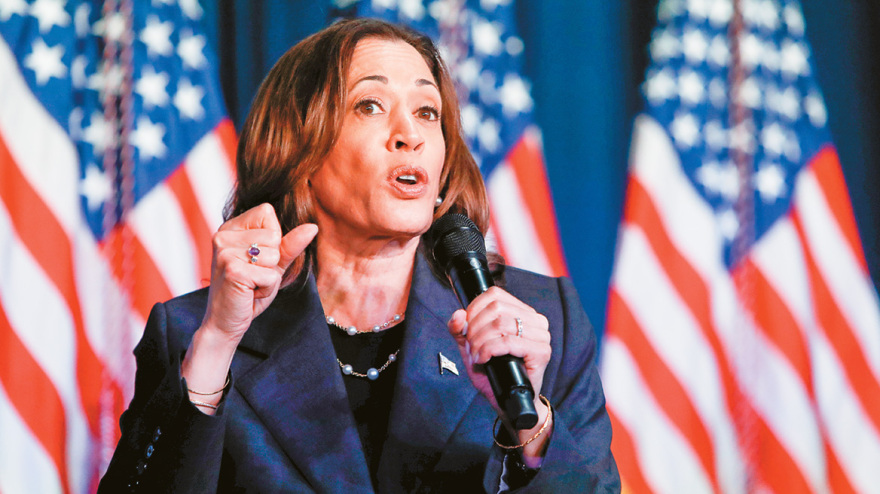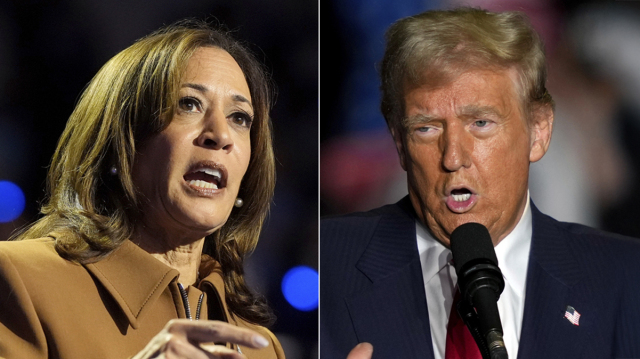NATO and Allies
Understandably, everyone is concerned, especially the United States’ NATO allies. Trump has previously warned of a restructuring within NATO, threatening action against member states whose defense spending falls below the 2% of GDP threshold. In the case of a Harris victory, however, such changes in NATO’s operations may seem inevitable. Still, many high-ranking officials in Brussels believe that, while Trump’s threats may not be fully implemented, they could destabilize NATO’s cohesion and functioning.
On the other hand, a Harris administration raises concerns among Europeans about pressure to engage more heavily in conflict zones where Washington believes NATO must intervene to counteract the geopolitical influence of what it calls the “axis of evil”—Russia, China, and Iran. This would likely include more extensive involvement in Ukraine and the Middle East. The current European Commission structure, shaped by Ursula von der Leyen, includes figures with pro-NATO and anti-Russia stances that are arguably incompatible with Trump’s policies.
Within the EU, in light of political uncertainty in the U.S., two main policy leadership groups have emerged. First, there’s the Macron-Scholz-Tusk axis, which shares a vision of security, defense, European sovereignty, alliance solidarity, and increased collective military support for Ukraine.
European NATO partners committed to European ideals recognize the need to bolster their security independently. What will be at stake in the upcoming Tuesday election is the speed at which Europe pursues this autonomy from the U.S.
On the other side, the right-wing bloc, seeking a “preferred interlocutor” role with Trump, includes leaders like Hungarian Prime Minister Viktor Orbán, Italian Prime Minister Giorgia Meloni, and Polish President Andrzej Duda.
Notably, the selection of former Dutch Prime Minister Mark Rutte as NATO Secretary General meets the need for balance and positive NATO-White House relations, regardless of the election outcome. Rutte’s favorable rapport with Trump during his presidency serves as a solid foundation.
Ukraine and the Middle East
Tensions are expected to be inevitable and intense. Regarding Ukraine, Trump claims he could end the war within a day by pressuring Russia into a compromise, asserting that American protection has a cost. This claim is widely questioned. Essentially, Europeans may need to prepare for fully shouldering the defense and economic support for Ukraine, or face a potential concession to Putin.
Trump’s running mate, J.D. Vance, has even suggested that ceding some Ukrainian territory to Russia may be necessary. In contrast, a Harris victory would mean a tough stance on Russia and continued support for Ukraine “for as long as needed.” This would suggest a continuation of the West’s current strategy, albeit at a substantial cost. Understandably, Ukrainians are highly anxious about the U.S. election’s outcome.
In the Middle East, Trump, a staunch supporter of Israel, has urged Netanyahu to “finish the job” in Gaza and Lebanon. Although he also opposes the Iranian regime, it’s uncertain if he would allow Netanyahu a free hand in Iran. Trump has previously expressed hopes for political change within Iran but has avoided detailing how this might be achieved. Moreover, his “maximum pressure” campaign on Iran is considered unsuccessful, as it led to the U.S. exiting the nuclear agreement, leaving Tehran closer than ever to developing a nuclear bomb.
Efforts under Harris to revive the nuclear agreement also failed. If elected, the new President would likely press Tel Aviv for an “immediate ceasefire” and address the humanitarian crisis in Gaza, unburdened by the electoral need for support from the Jewish lobby.

Tariffs and Implications
Regarding the impact of a potential Trump presidency on trade, analysts suggest that if he follows through with his proposals to impose an additional 10% tariff on European goods, the EU could face costs between €80 and €150 billion. This would be significant, though not insurmountable. It’s anticipated that Eurozone GDP could see a reduction of about 1.3% in 2027 and 2028.
Germany would likely feel the effects more acutely. Given the already reduced level of German exports, a potential tripartite trade war involving the U.S., the EU, and China could shrink German exports further—up to 10% to China and 15% to the U.S., according to a study by the Ifo Institute.
The duration of this scenario will depend on how quickly the EU takes countermeasures. Such policies, or even just the threat of them, typically lead to significant short-term market volatility, negatively impacting business confidence and investment.
Thus, the U.S. election has the potential to introduce a series of downside risks for the European economy. However, these could be offset in the medium term if supply chain redirection results in greater investment within the EU. Many believe that the EU finds itself “between a rock and a hard place” because the continuation of Biden’s policies under Harris, which aim to strengthen the U.S. economy and industry—particularly the energy sector—could incentivize the relocation of European industries to the other side of the Atlantic, further harming European competitiveness.
In any case, the U.S. election outcome should spur the EU to accelerate the development of its own economic agenda to withstand either direct or subtle pressure from the U.S.
Another major issue at stake in the U.S. election is climate change policy. Trump denies its existence, having previously withdrawn the U.S. from the Paris Agreement—a decision reversed by the Biden administration. Now, Trump promises to eliminate various “green” programs. Conversely, the net-zero targets for 2050 would benefit from a Harris presidency, as she is expected to continue Biden’s policy of supporting green energy investments.
Relations with China
Three main “sticking points” shape U.S.-China relations and will be at stake on November 5: Taiwan, the Russia-Ukraine war, and the trade war. On Taiwan, unlike Harris, who focuses on alliances, Trump questions the benefits of many such U.S. partnerships. When he has mentioned Taiwan, he has mainly focused on how it has taken over America’s semiconductor production and should contribute more financially to its own defense.
On the Ukraine front, a future Trump administration might bolster Russia by withdrawing U.S. support for Ukraine—a scenario that would likely be welcomed by Beijing.
On the economic front, a Trump return to the White House would probably rekindle the trade war he began in 2018, accelerating the economic decoupling of the U.S. and China, with both sides standing to lose.
Harris aims to minimize risks from China while maintaining U.S. global dominance. This approach may make Beijing more inclined to prefer a Harris presidency, as it would allow for room for negotiation. However, the tariffs and technological restrictions China faced under the Biden administration would likely continue under Harris.

Greece’s Interest
The U.S. elections hold significance for Greece, though perhaps not in the way many assume or wish others to believe. The truth is that under Biden’s presidency and Kyriakos Mitsotakis’ leadership in Greece, Greek-American relations “took off.” There has been full strategic alignment on major issues of regional security and stability, with Greece developing defense, economic, and energy initiatives, along with multilateral partnerships with neighboring countries, all of which align closely with American strategy in the region.
Greece supported sanctions against Moscow, bolstered Ukraine’s defense, and followed a costly policy of energy independence from Russia—decisions that proved beneficial. This alignment has also resulted in a surge of American investments in Greece, prioritized arms supplies, and a strong sense of security amidst rising tensions with Turkey in the region.
However, there has been no progress toward resolving the Cyprus issue, despite Biden being a strong advocate for a fair and sustainable solution. And while Greek-American relations did progress during Trump’s tenure, his personal affinity toward authoritarian leaders, such as Erdogan, made for a friendlier stance toward such regimes.
It is uncertain whether Harris, as president, would actively continue Biden’s path of improving bilateral relations, recognizing and investing in Greece as a stabilizing factor in the broader Eastern Mediterranean and Southeastern Europe. Whether she would truly honor the enthusiastic applause she received during Greek Prime Minister Mitsotakis’ historic address to Congress two years ago remains unclear. Although Greek-American figures in her team (such as Eleni Kounalakis-Tsakapoulou) assure that she will continue Biden’s legacy in this regard, the signals are not entirely decisive.
Similarly uncertain is whether Trump, as president, would devalue Greece’s role to foster a renewed strategic relationship with Turkey, which he has often viewed as a valuable ally. In the past, he skillfully balanced relations, ensuring relative satisfaction on both sides while keeping his own interests intact.
Greece’s alliances with other key regional players—such as Israel and Egypt, European-Balkan NATO allies (despite the “thorn” of Albania), and, of course, Cyprus—will play an important role. Equally important is the continued strengthening of the Greek lobby in Congress, where, beyond the White House, major U.S. foreign policy decisions are made. A Trump victory would likely embolden the influential pro-Turkey lobby to push for increased arms supplies to Turkey alongside strong investment initiatives.
Notably, Trump’s previous administration was favorable to Greek interests. Despite the inconsistencies in foreign investment policy under the Tsipras administration, Greece emerged on the radar of American investment funds and major corporations during Trump’s tenure.
Congress as a Key Factor
An additional factor heightening the significance of the U.S. elections is that Americans will not only elect their 47th President on November 5 but also all members of the House of Representatives and one-third of the Senate.
Given the distribution of powers under the U.S. Constitution, post-election scenarios are compelling. In the first scenario, if Harris is elected and Congress remains divided or falls under Republican control, many of the President’s plans could be blocked, following the “usual” path of the previous four years.
With Trump as President and a divided Congress, there would be strong opposition and blocks on domestic economic and immigration policies, although tariffs on third countries might still proceed.
In a third scenario, if Trump wins and the Republicans hold a majority in Congress, the new President would have unchallenged control to implement his agenda for the country.
Source link : http://www.bing.com/news/apiclick.aspx?ref=FexRss&aid=&tid=6724a684dfce4d1abefaad47530cb98e&url=https%3A%2F%2Fen.protothema.gr%2F2024%2F11%2F01%2Fus-elections-2024-their-importance-for-americans-the-eu-and-the-whole-planet-how-greece-is-affected%2F&c=14836043421159678406&mkt=de-de
Author :
Publish date : 2024-11-01 02:42:00
Copyright for syndicated content belongs to the linked Source.



